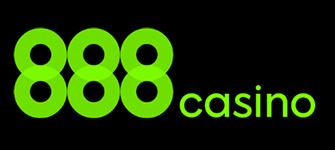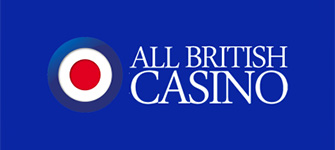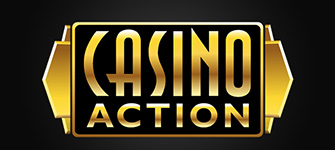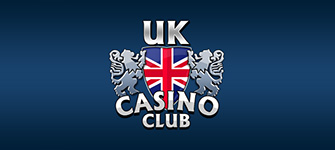Surrender in Blackjack
The option of surrendering in blackjack is one of the newer rules that was added to give the players a little bit of a fighting chance, so to speak. The rule first appeared in the late 1970s after the first Atlantic City casino, Resorts International, opened doors to customers. Newly opened casinos on the East Coast had to comply with the regulatory requirements of the New Jersey Casino Control Commission. Said requirements included a new rule, oddly named “surrender”.
Many players ignored the surrender option at the time, labelling it as a sucker move. Unfortunately, surrender continues to be one of the most misunderstood playing moves in blackjack to this day.
But the truth of the matter is surrender could be highly beneficial for players in certain situations and it actually reduces the house edge. It is because of this that few landbased casinos currently offer it at their blackjack tables but you can find it in many online variations of the game.
- ✓ What is a Surrender?
- ✓ Early Surrender
- ✓ Late Surrender
- ✓ When to Surrender
- ✓ Late Surrender Optimal Plays
- ✓ Early Surrender Optimal Plays
- ✓ The Benefits of Surrendering
If unsure whether this move is available, you can always check the rules in the help section of your chosen online blackjack game. When playing in a brick-and-mortar casino, be sure to consult the floor personnel and ask for this rule before sitting at a table.
What is a Surrender?
For the uninitiated, surrender is when the player forfeits half their bet when folding a hand in order to get the other half back. This is usually done in situations where the player knows that there is very little chance of beating the dealer.
From a purely mathematical perspective, giving up on half of your chips is still better than losing all chips. Surrendering is typically recommended whenever the hand you have been dealt has under 50% chance of winning against the dealer’s strong upcard. In fact, this is the first decision blackjack players must consider before making any other moves like doubling, splitting, hitting, or standing. Folding your hand will be impossible if you have already made any of the other moves.
After the initial deal, players must evaluate the strength of their two-card hands against the exposed card of the dealer. Given that a hand’s likelihood of beating the dealer is under 50%, the player can take advantage of the surrender option, giving up on their two cards in exchange for half of their initial wager. The dealer would give the other half of the wager back.
When playing blackjack in a landbased casino, there are two ways for you to surrender a hand. Which one you use depends on whether you are sitting at a shoe-dealt table or are playing a hand-held game. Either way, you must communicate your playing decisions by using the correct hand gesture as etiquette requires.
In shoe games that play with multiple decks, players are disallowed from touching their cards and can surrender by drawing a horizontal line with their index finger right behind their betting boxes. This hand signal kind of looks like the player is slicing their wager in half.
A different gesture is used in hand-held games that are dealt out of one or two decks only. In this case, the player must put both of their hands up as if they are conceding their defeat. The palms should be facing the dealer. It is advisable for the player to verbally state their intention of surrendering while making the hand signal.
The gestures are not uniform and may not coincide at all tables. Once you clearly indicate you want to surrender, the dealer would place your two cards into the discard tray, collect half of your wager, and leave the other half in the betting circle for you to pick up. There are two types of surrender – early surrender and late surrender. We expand on each version in the paragraphs to follow.
Early Surrender
Early surrender is most definitely the better of the two versions from the player’s perspective. This rule first emerged in Atlantic City a few years after the state of New Jersey legalized casino gambling. It is called early surrender because the player does not have to wait for the dealer to peek under their hole card to see if they have a natural.
One interesting historical fact about early surrender was that it was introduced because New Jersey’s gambling regulator had initially prohibited the peeking rule. Thus, the dealers could not see whether they had a blackjack when showing an ace or a ten until all patrons had finished playing their hands.
As we know from basic blackjack rules, if the dealer scores a natural (an ace and a ten after the initial deal), the dealer beats automatically all non-blackjack hands of the players. Hence, early surrender allows players to receive half their bets before the dealer figures out they have a blackjack. It makes sense this rule is incredibly beneficial for the patrons, which explains why Atlantic City casinos removed it shortly after its introduction. Early surrender has now become obsolete in landbased casinos, with very few venues still offering it.
Players can find it online in RNG-based games like Microgaming’s Big Five Blackjack. To our knowledge, Ezugi was the only supplier of live dealer blackjack games to offer early surrender.
Late Surrender
Most blackjack games do not support this rule but those that do lean toward late rather than early surrender. When playing at a late surrender table, you must always wait for the dealer to check under their hole card before you are allowed to forfeit a bad hand. If the dealer has a natural, then the player can do nothing and loses their full bet.
However, if the dealer has not obtained a blackjack, late surrender becomes available to players. While somewhat counterintuitive, this move can be very powerful in certain situations as long as you know how to implement it properly. Late surrender still leads to a reduction in the house edge, albeit a much smaller one compared to early surrender. The exact percentage drop varies depending on deck number.
When to Surrender According to Basic Strategy?
The surrender rule is favourable to players but only on condition they can identify the situations when this is the optimal way to play out their hands. The main idea here is that one should surrender only on condition the two-card hand they have been dealt has less than 50% chance of winning against the dealer’s upcard.
By surrendering, players would lose only half their original wager rather than the whole amount. This might not sound like a big improvement but it still gives you value and saves you money in the long term. You will see what we mean after you consider the following example.
For the purposes of demonstration, we shall assume we are playing a shoe game with six decks where the S17 and the DAS are in place. A new round starts after the reshuffle and we receive a hand of hard 16 like 7/9. Meanwhile, the dealer has a Queen as their upcard.
The expected value of our hand is -0.537, or a little less than 54%. In other words, this hand will lose against the dealer’s ten approximately 54 out of every 100 times on average. Of course, these results are valid in the long run and are spread over thousands of played hands.
This is to say that we will be down roughly $54 for every $100 wagered on this hand against the dealer’s ten. Meanwhile, if we surrender in this situation consistently, as recommended by basic strategy, we shall lose only half of the money we have wagered, or 50%.
The question arises when should the player implement surrender? The basic strategy decisions for surrender depend predominantly on the dealer’s rules for standing although deck number also affects certain optimal moves.
Late Surrender Optimal Plays
We offer you a rundown of the instances that call for late surrender below. We have covered the moves for S17 games since this dealer rule is more favourable for the player than H17. You will find the optimal plays for surrendering in H17 blackjack games in the When Late Surrender is Better than Hitting section of GamblingPlex’s article on How to Hit a Hand.
Basic Strategy Recommends Late Surrender for S17 Blackjack for the following hands:
- Hard 15 against a dealer 10 when four to eight decks are in play
- Hard 16 against a dealer 9, 10, and ace when four or more decks are in play
- Hard 16 against the dealer’s 10 and ace in single-deck games
- A pair of 7/7 against the dealer’s 10 in single-deck games
- Hard 15 against the dealer’s 10 in double-deck games
- Hard 16 against the dealer’s 10 and ace in double-deck games
Early Surrender Optimal Plays
Early surrender is a real rarity in both landbased and online casinos. However, you can still find it in some online variants of 21, particularly in Big 5 Blackjack by Microgaming. Similarly to late surrender, the correct plays here are influenced by the dealer’s fixed rules. i.e. whether they hit (H17) or stand (S17) on soft 17. Deck number also plays a role here.
You will struggle to find a landbased casino in the United States that allows for this rule, the reason being it is simply far too disadvantageous for the house. Atlantic City casinos removed it shortly after introducing it as they noticed a 4.5% jump in the winning rates of blackjack players while early surrender was in force. As a matter of fact, early surrender is so powerful that it can completely destroy the house edge even if you play with basic strategy only, without counting cards.
While rare, this rule is still available in some brick-and-mortar casinos in Asia and Europe. When offered, it is supported mainly at tables that utilize the European style of card dealing. There are no hole cards in such games.
The dealer at one such table does not take a hole card but rather receives one face-up card at the start of the round and draws their second card once players have finished with their decisions.
In such games, the early surrender option becomes available when the dealers draw either a ten or an ace as their first card. There are exceptions in some Macau gambling venues where this option is offered to players only when the first card of the dealer has a value of ten. Here are the recommended plays for tables where early surrender is still an option.
Early Surrender Plays for Shoe Games
- Hard 14, hard 15, and hard 16 should be surrendered against the dealer’s 10.
- Hard 5 through hard 7 are surrendered against the dealer’s ace.
- Hard 12 through hard 17 are surrendered when the dealer has an ace.
- Hard 16 (Q/6, K/6, J/6, 10/6, and 7/9) is surrendered if the first card of the dealer is a 9. Hard 16 consisting of paired 8/8 calls for a split rather than surrendering.
- Pairs of 3/3, 6/6, 7/7, 8/8 should be surrendered when the first card of the dealer is an ace.
- Pairs of 8/8 and 7/7 also require surrendering when the dealer draws a 10 as their first card.
The Benefits of Surrendering
Many blackjack rookies, along with casino pit bosses and dealers in some cases, jeer at players who use the surrender option because they think this is a silly move. Why give up on your hand and get only half of your bet back when you can take your chances, beat the dealer, and get paid at even-money odds?
Well, here is the thing. Such people are clearly oblivious to basic strategy, which is why we suggest you refrain from taking their advice. Basic strategy would never recommend this move had it not been the most optimal play for some hands, compared to hitting, standing, splitting, and so on.
Surrender Saves You Money
Surrender is one of those playing options that aim at saving players money in the long term. By surrendering properly, you can minimize the damages your blackjack bankroll will suffer when you get dealt hands that are sure losers against the dealer’s strong cards.
One example is when the dealer starts their hand with a ten-value card, in which case, they would go over 21 roughly 23 in every 100 hands. A dealer with a ten also gets high totals like 21 or 20 approximately 41 per every 100 hands.
Meanwhile, if the dealer starts with an ace but does not have a natural, they will get totals of 19 or higher 46 per every 100 hands while breaking their hand only 17 per every 100 hands. As you can see, such hands are next to impossible to beat with weak totals like hard 15 and hard 16.
Surrender Dents the House Edge
The availability of surrender effectively reduces the house edge, causing you to lose less money than you otherwise would. By how much exactly depends on whether you use early or late surrender. Late surrender against a dealer who shows a ten is known to cause a 0.07% drop in the house edge but this percentage can increase to 0.10% based on the rest of the playing conditions at a given table.
As for early surrender, it is not surprising it is hard to come by, especially given that it reduces the house edge by 0.39% against the dealer’s ace and 0.24% against the dealer’s ten. This is enough to completely offset the house advantage in some blackjack games.
Surrender Helps Flatten Bad Swings
Another benefit of using the surrender option is that it allows you to better handle bad swings, which, in turn, would help you preserve your blackjack bankroll for longer. To wrap things up, we suggest you ask the dealer or the pit boss whether the tables you are interested in support the surrender option. Unlike the payouts for blackjacks and insurance and the dealer’s fixed rules, the tables’ layout does not feature any information about surrender.


 PlayOJO Casino
PlayOJO Casino 888casino
888casino All British Casino
All British Casino Casino Action
Casino Action UK Casino Club
UK Casino Club